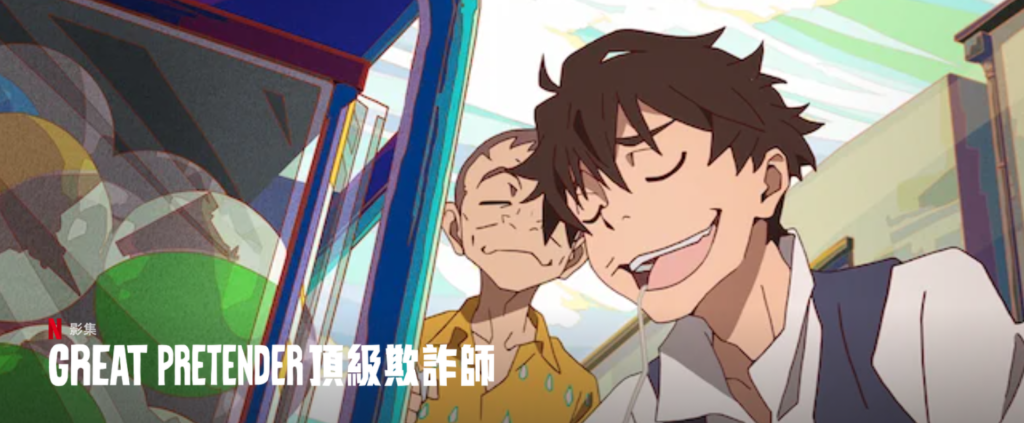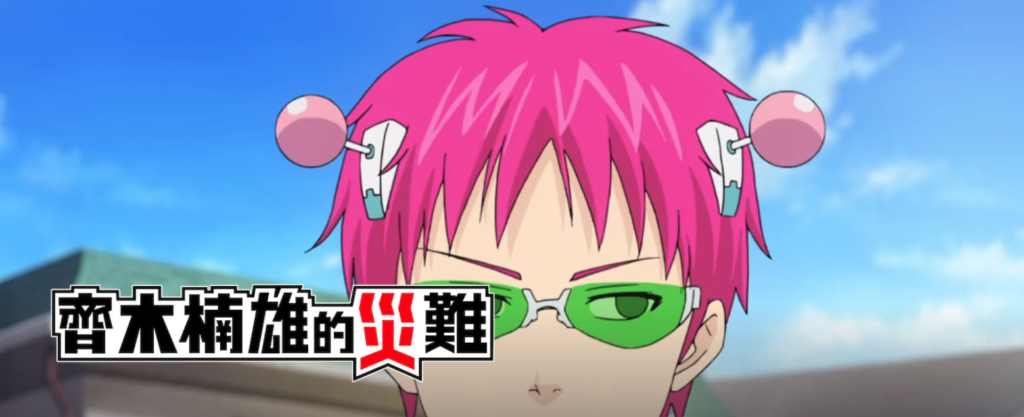As I’ve written many articles before, when I graduated from college, I didn’t even pass the Chinese English Exam 4 level, and my highest score was 58. I didn’t think there was any real difference between a 58 and a 60, so I didn’t bother retaking it. I’m a programmer, and I can read technical articles in English. Although in life, I don’t understand English spoken by foreigners. At most, I can say Hello, How are you, and so on.
But I think my English is good enough for this life. When I read articles, I look up the words I don’t know. When I was 25 or 26 years old, I lived in Beijing, and I met two foreigners who asked me for directions, and I solved both of them with my poor broken English.
One time, I was walking on Nanchi Zi Street (a small street east of Tiananmen Square, where I was working at the time), and a taxi driver stopped and asked me to help him. I said, “I’ll help you.” So the driver signaled to the foreigners.
I didn’t understand them very well, but apparently, there were some words like Tiananmen Square. I wanted to use my English to answer their questions. I couldn’t figure out the simplest words like go straight forward, turn right…, and so on. I said, “Follow me,” and in a few minutes, the foreigners saw Tiananmen Square, thanked me happily, and walked away.
Another time was on Jingshan Mountain. I looked at the mountain view from the citadel when a foreigner came and asked me if this was the best spot on the mountain to shoot the Forbidden City. I racked my brain for something pretty to say in English, and finally just thought of yes, and kept nodding my head.
In fact, I was a completely irrelevant English speaker, and I didn’t want to learn it at that time.
I didn’t start learning English seriously until I was in my 30s.
After all, I had never been abroad, and I didn’t think English was that important.
But around my mid-30s, I suddenly fell in love with watching American dramas. At first, I chased after various subtitlers to watch the dramas. Then one day, I realized that if I stared at the subtitles, I couldn’t watch the drama and write code simultaneously. And I had two huge monitors to watch the drama and write code at the same time. So I started to ask myself, can I listen to American dramas without reading the subtitles? This hard listening path eventually led me to ask myself why, after studying English for more than 10 years in school, I couldn’t speak anything after graduating from college and couldn’t understand most of the slightly more complicated dialogues. But after just a few months of hard listening without subtitles, my listening skills improved by leaps and bounds, and I learned many words I had never heard before. Then a few years later, I wrote one of my most popular WeChat articles, “How I Learned English (How to Break Through the Listening, Reading, Writing, and Speaking).”
It’s been more than 5 years since then and now. I have long since stopped simply watching American dramas without subtitles. I have hardly watched any Chinese dramas or Chinese variety shows for many years now. My entertainment is American dramas, English movies, and the like, especially after I started to love watching Youtube.
I have also stopped buying Chinese books for many years. Although some of my friends would send me their own book when it was published, and some good publishers would send me a good book when they had a good relationship with me. And my friend Dahui gave me Duku as a gift for years. Other than that, my family hardly has any Chinese books. All I buy are English books, Kindle e-books from Amazon, in English.
Every time I see someone mention a book in translation that I find interesting, I go to Amazon and buy the English version. Sometimes I also place an order for the audio version at the same time, mainly for listening.
After I turned 35, I went abroad several times to the United States, Singapore, and Japan. In all these places, I traveled on my own, arranged my own itinerary, and communicated with people using English. I felt great freedom. Many people say that Japanese people don’t speak much English, but I actually went to Japan twice, once to Kyoto and Osaka, once to Tokyo. I spent more than a week in both places. I probably only met 2-3 people who didn’t speak English at all. The others had no problem communicating, no matter how good or bad their English was. In Singapore, although almost everyone speaks Chinese, I always communicate in English, but occasionally when my English is not good enough, or something is not clear, the other person may explain in plain Chinese, and then explain that he is actually from the Dongbei China. Or she is Chinese. She is doing an internship in the era or something.
But I never really thought about learning another foreign language. Instead, I looked at the app for French, and I didn’t like it. Instead, I read some articles on Sacred Scripts and some articles on Cuneiform. I liked both of them super much, but unfortunately, they are dead texts that are only of value for academic research and not for everyday communication at all.


At the age of 41, I started learning Japanese.
It wasn’t until I had been to Japan twice and talked to many friends who lived in Japan that I had the idea to immigrate to Japan. Actually, it is possible to live in Japan if you only speak English. There are a lot of such foreigners in Japan. But I felt that if I could speak Japanese well, I would live a better life and better understand the history, customs, and reality of Japan.
So, about half a year ago, I started to study Japanese seriously. Every day, I spend at least an hour learning a little bit of Japanese in several neighboring countries. About a month ago, I started watching Japanese anime, and the first one I watched was “Great Pretender.”

Then it was “The Disastrous Life of Saiki K.”.

Now I’m watching “Naruto”.

My Japanese is still very basic, but I’ve found joy in learning the language. I’m learning new vocabulary and syntax every day. And I started writing a sister app to my English Easy Reader called Japanese Easy Reader, which isn’t online yet. I’ve also written another app dedicated to learning Japanese, but of course, that one isn’t finished yet either.
Learning a new language is not just fun, it’s a gateway to a new world!
Learning languages is becoming more and more of a joy for me. Just like when I graduated from college with trash English, dumb and deaf English, my hearing skyrocketed in my 30s, and I can understand what most TV dramas are talking about. I can communicate with people when I travel abroad to buy things, play, and take the bus without delay. Especially after I started to read English books and watch English videos on Youtube, I suddenly found that the whole English world opens up to you.
I used to think that translating books would be enough, but that’s not the case at all. In fact, hundreds of thousands of English books are printed every year, and only a few of them are translated into Chinese. And even if a book is translated quickly, it can take months to a year with the publishing process. When I started reading Zero to One and The Hard Thing About Hard Things, there were no translations available in China. I talked to a friend of mine about The Hard Thing About Hard Things, and it took him half a year to see it published in Chinese, and after he bought it, he thought the book I recommended was too good. But many other good books have not yet been translated into Chinese for various reasons.
In fact, on Weibo, there are many porters on Bilibili who work tirelessly to carry the excellent, wonderful, funny, and philosophical content from Youtube with Chinese subtitles to send out. However, what they bring in is a drop in the ocean compared to the best content on Youtube, and it is often no longer fresh by the time it is brought in.
So a language is not just a tool. It is a door to a culture, a history, a message. When I learned English, I felt that the world had opened up to me. I discovered this as I was learning Japanese. When I was a kid, most of the anime we watched was Japanese, but we watched the translated versions, and the people spoke Mandarin with a perfect accent. Now that the anime I watch is in Japanese, I still need subtitles, but I understand the dialogue more.
The History and Nature of Language
I used to be interested in how the Chinese characters came to Japan and gave birth to Japan’s own characters. Those kanji have been left to this day. And around the May 4th movement, those Japanese kanji words were fed back to China, helping to form our modern Chinese language. I was curious about all of that. But at the time, I didn’t know Japanese and couldn’t understand the details. Now I know that kanji in Japanese have 音読み and 訓読み. I know which characters are pronounced similarly in Japan to the Chinese pronunciation, which is pronounced exactly in Japanese, but with a kanji to simplify the hiragana. These things will come to me when I learn more about them. (I’ll write an article and do a video chat about these things when I get deeper into them)
When I studied only English as a foreign language, my understanding of the language was still superficial. After learning Japanese, I began to think more about the nature of language and words.
I had seen some experiments that showed that orangutans have an amazing memory and even seem to be better than humans. Yet language is still the preserve of humans.
No other animal has developed a language to the level of humans. Bago and the like only imitate the sounds of human language, which is not communication but a reflex.
The human language itself is also hierarchical. For example, a paper I read earlier said that its language will be limited if a tribe stays at the hunting and gathering stage. Their concept of numbers will not develop beyond 3. Above 3 would be called a lot of numbers.
There are races in the world with languages but have never developed writing, such as Maori, which has no equivalent. The Maori language was not given a Latin alphabet until the British immigrants arrived.
China may have had a simple script before the Shang dynasty, but the Shang’s oracle bones are the obvious script, and they have a complete lineage with later scripts. On the other hand, Japan did not create its own script until after the Tang Dynasty, based on the cursive radicals of Chinese characters, and made extensive use of Chinese characters in its writing system.
Before the 15th century, Joseon used Chinese characters directly, but the Korean language and Chinese characters were not compatible. It was not until 1443, during the reign of the Ming Dynasty, that Joseon began to develop its own writing system.
I have read many articles and data and figures on the subject, and I find that language is actually a human instinct. Or according to some books today, the reason human beings are human is that they have a language to communicate and pass down memories. Many peoples recorded their history in epic poems and transmitters before writing was developed, and it has been passed down for thousands of years.
Everyone Can Learn a Foreign Language
Many people find it difficult to learn a foreign language and easy to learn a native language. Chinese people find it hard to learn English, while foreigners find it hard to learn Chinese. In fact, although each language is very different, modern languages have so many concepts to express and so many complex situations to deal with. Although the structures are completely different, the difficulty is similar.
Why is it easy to learn a native language? Because most people have been listening to other people since they were born without speaking at all, and have been building up their listening skills. However, when learning a foreign language, many people cannot establish an environment that allows them to immerse themselves in the language. Besides, infants are unable to resist; they have to get a lot of input. On the other hand, adults tend to get irritated when they hear a language they are not familiar with.
So, for many people, the most important thing in learning one or two foreign languages is to get rid of the charm, that is, to understand that it is not that difficult for people to learn one or two foreign languages. It’s just a matter of being exposed enough to the language. Native languages are somehow learned because the environment is innate. In fact, a foreign language can be learned in this way. If you don’t have a foreign language environment, you can make your own.
There are various courses, apps, and websites that can help you get started at this age. There are all kinds of websites, free e-books, and videos that provide many reading and listening materials in foreign languages. As long as you are willing to learn, you can always learn.
I’m now focusing on Japanese, and I’ll keep on learning English, so I don’t need to spend time deliberately learning it. Because I already have a lot of technical material to read and many TV shows to watch. My English inputs are not getting smaller because they do not come from me wanting to learn English, but because we need English to live, work, play, and learn. My Japanese is slowly moving into this pipeline as well. I’ve been watching a lot of Japanese anime. With the launch of Japanese Easy Read, I will be able to read many Japanese articles, and I will be buying a lot of Japanese e-books to read.
In my lifetime, I will learn more languages, perhaps sacred script and cuneiform. Maybe Spanish or French or Italian or German. I don’t know yet where my future interests will take me. But it is in the exploration of the world that one’s inner world progresses and grows.
I am only 41 years old, and my exploration of the world is not over, but perhaps just beginning.